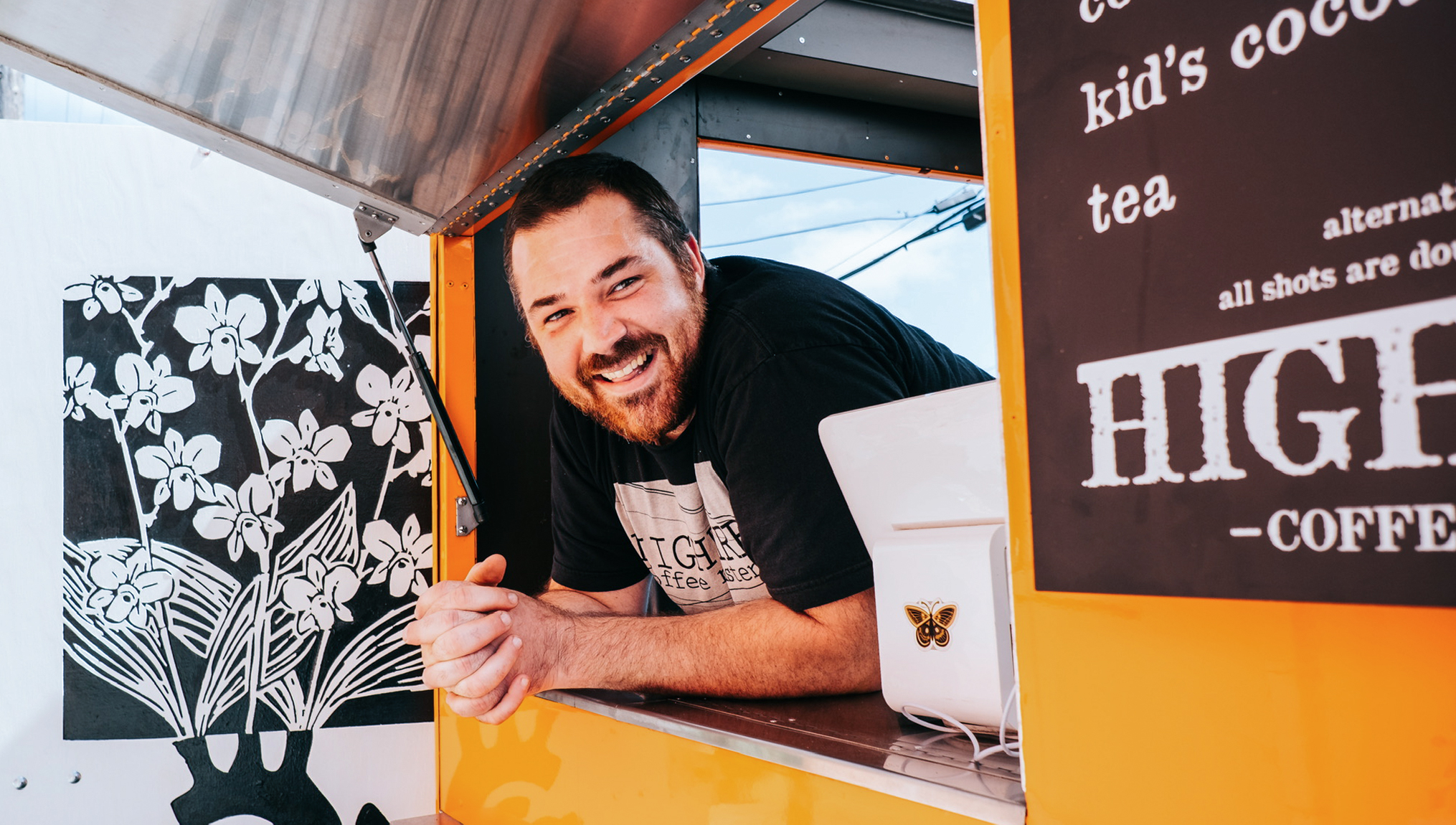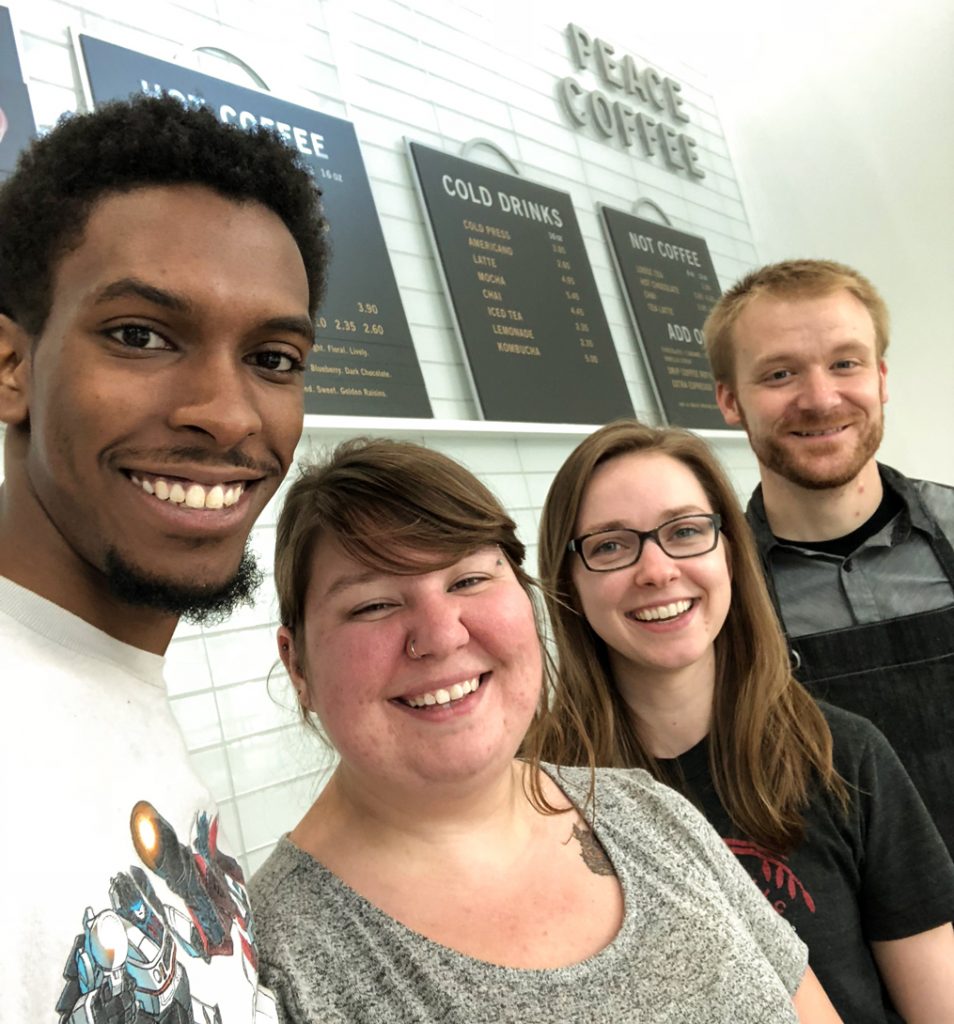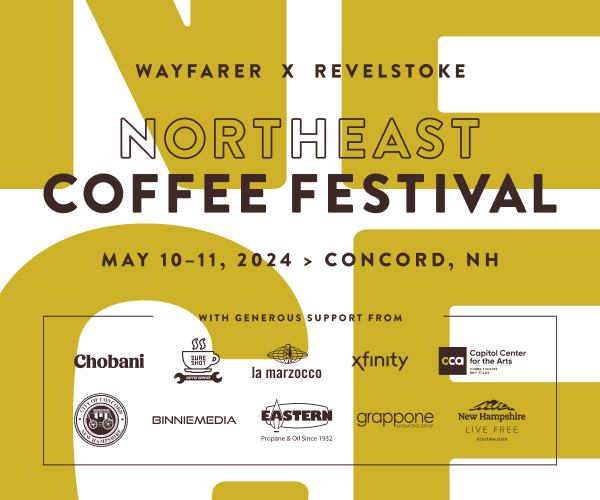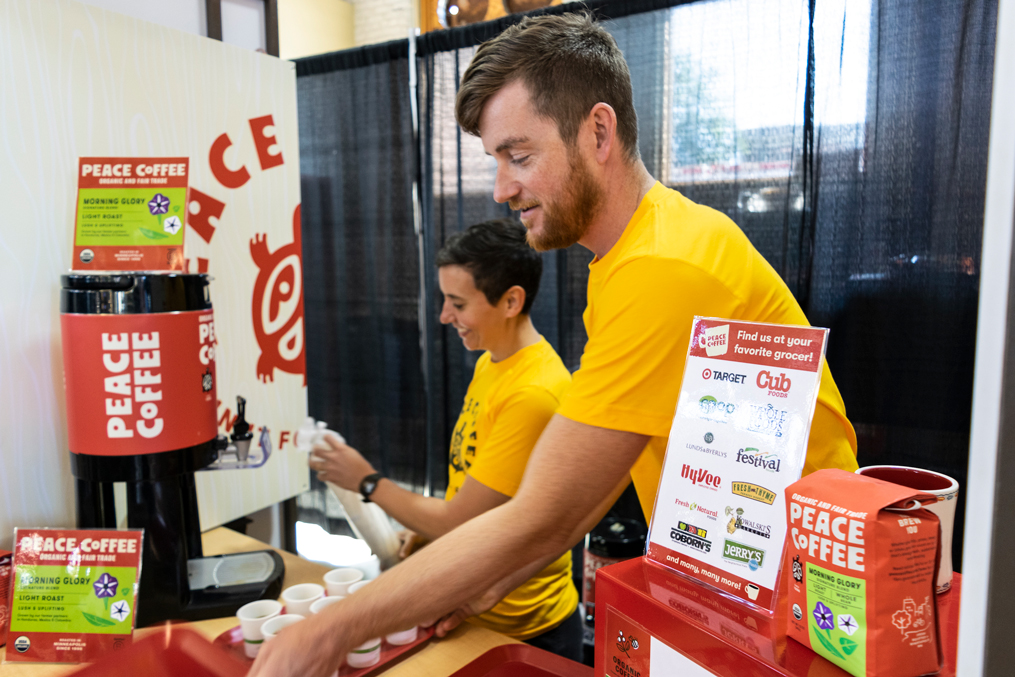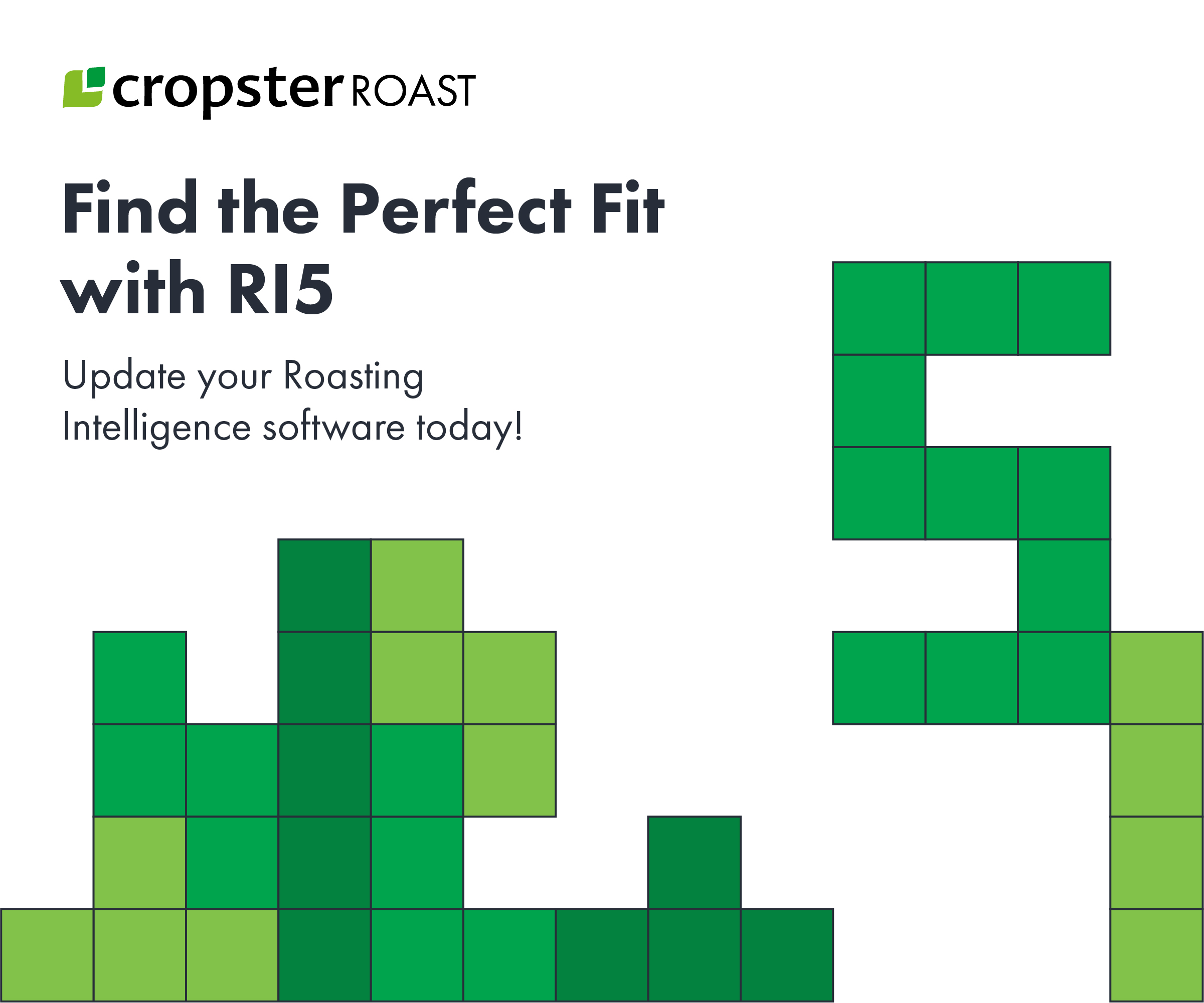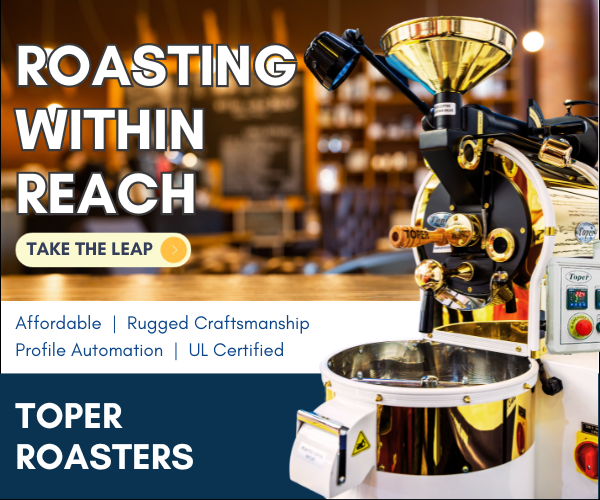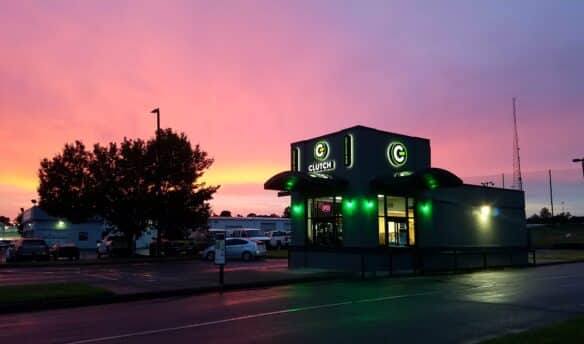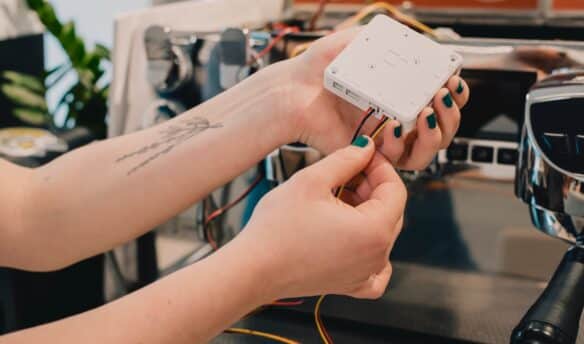Photo courtesy of Highwire Coffee Roasters
[T]o build a sustainably-focused business—in terms of environmental practices, community engagement, ethical sourcing, and more—you need a team that believes in those overarching values. But how can you find employees whose passions align with those of your café or roastery?
It all starts with knowing your mission and being able to articulate it to others, says Joe Kennedy, roaster and cofounder of the new King’s Gambit Coffee Co. in Belvidere, New Jersey, which he launched in December with his wife, Laura.
“The best message to give anybody starting out is, number one, know who you are and where you want to be,” says Joe Kennedy. “Once you know that, then it’s your job to sell that to the different people you come across. And the ones that are on board with that, they’ll naturally cling on.”
Identifying Candidates
Like many businesses, Minneapolis-based Peace Coffee adopts a multi-stage approach for screening and interviewing new prospective hires.
When openings are available, candidates are invited to submit an initial application with “three screener questions, including, ‘Why do you want to work at Peace Coffee?’ This lets us see if they have any awareness of us and if they’re going to be a good culture fit,” explains SueLynn Junkert, Peace Coffee’s human resources manager.
Then, promising candidates move on to in-person interviews with Miré Regulus, the company’s director of drinkable hospitality, and her team.
Significantly, Junkert and Regulus look for skills and interests outside of simply coffee shop or barista experience when determining a “culture fit.”
“We’re looking for a variety of things. Most of what we’re really interested in when we’re looking for [new] people are candidates who are interested in building community—both with the customer and also with each other,” says Regulus. “We believe we can teach anyone the mechanics of how to be a strong barista if they care. You can’t teach people how to want to make that community connection.”
Highwire Coffee Roasters, which operates in multiple locations in the San Francisco Bay Area, conducts informal, panel-style conversational interviews between staff leadership and prospective new employees as a way of identifying a good fit.
“We want them to feel like they’re choosing us and we’re choosing them rather than them just being interrogated,” says Highwire CEO Robert Myers.
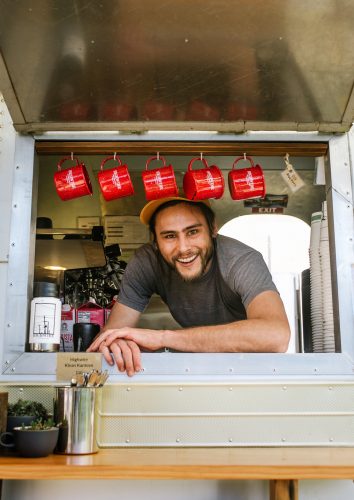
Many times, candidates come to Highwire already very aware of its mission-oriented approach and share that the company’s “passion for values and sustainability” is one of the main reasons they want to work there,
says Myers.
“We have a fair number of candidates who come to us saying they’re applying because they want to work for someone who is values-driven,” he says. “Often, candidates will do their homework and read about us on social media. They’ll pop into our store and read our Yelp reviews. Sometimes they’ll even surprise us and mention something from our blog that I’d written about a few years ago.”
Finding the Right Fit
When you find a candidate who’s on board with your mission, you’ll often see it in their body language during the interview.
When Joe and Laura Kennedy were working to build a 10-person staff to launch King’s Gambit, they brought candidates in and described their future vision for the business, which includes plans to source milk from local dairy farmers, the ability to tip coffee growers via blockchain, and even an eventual greenhouse education center to showcase the coffee-growing process.
“Once you understand your vision and communicate it, it really is just about reading candidates’ body language,” says Joe Kennedy. “The ones that light up are the ones who are really interested in making a difference.”
“One woman in our group interview, when we described the milk we were going to bring in and how we were going to be helping farmers, literally almost started crying,” adds Laura Kennedy. “It was clear, she was on board.”
To ensure the candidates most likely to mesh with their vision made it to the interview stage, Laura Kennedy screened online applications for keywords that offered insights into applicants’ passions, hobbies, and community volunteerism.
Like the staff at Peace Coffee, the Kennedys agree that these insights were often more valuable than a candidate’s prior experience with coffee culture.
“Candidates’ volunteer work and specific hobbies tell you about where they are in their lives and where they’re headed,” says Laura Kennedy. “Often from their résumé and from their past experience, you can get a sense of whether they’re going to buy in [to your company values] or not.”
When a new employee onboards at Highwire, a daylong “foundation” meeting with at least two of the company’s founders provides an in-depth orientation to the company’s mission-oriented approach to doing business.
“It’s an introduction of our values and the how and why of Highwire. More than just how to work the register, it’s the guts behind what we’re doing,” says Myers. “We do it to ask them to buy in.”
Dedicating time to help new staff feel on the same page with a company’s mission sets a tone that there’s real commitment there—in essence, that the business walks the walk.
“I’ve worked for companies where you hear a mission statement once and then never again,” says Myers. The foundational onboarding process “[lets us] make an out-loud promise to every Highwire employee that these values are what we’re using to make every decision. It’s also their invitation to have a conversation with us at any time about our mission—or to suggest ideas for how to improve.”

